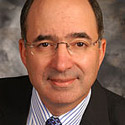04:30 PM
NYSE Specialist Elimination Is Overdue
THE NYSE is talking about eliminating its "specialists" and turning them into "designated market makers." I say, it's about time. For those who don't know, the specialist is the person/firm that runs the NYSE floor auction, and it has been a controversial position since decimalization.
As markets shifted from fractions to pennies, spreads tightened, liquidity fragmented and specialists had a more difficult time matching buyers and sellers profitably without getting in the way. And as specialists "got in the way," they (rightly or wrongly) were blamed for hampering execution instead of helping it. Frustration was so high that two of seven specialists (Susquehanna and Van der Moolen) in the last few weeks announced that they are abandoning their roles.
Many applauded these moves, believing the position should be eliminated. But as the NYSE market continues to become more electronic and faster, the role has value in certain circumstances -- however, that value is very different today than before decimalization. This is especially important with less-liquid stocks, for which specialists step in to provide the missing liquidity and keep markets stable.
There are two ways to provide incentives for market intermediaries, however -- through cost and through information. Traditional NYSE specialists have had information incentives, as they had (and continue to have) greater access to order book and flow information than others.
Duncan Niederauer, the NYSE's new CEO, however, wants to shift this balance. Niederauer is looking to change the NYSE rule set in order to provide more open access to the order book, provide greater electronic access, and limit and/or shift the intermediaries' benefit from being information-based to cost-based. With this change, the exchange will change the name of its intermediaries from "specialists," which denotes exclusivity, to "designated market makers." All are good moves.
The U.S. as a market has moved beyond the need to provide informational advantages to fiduciary intermediaries. In fact, we have moved to the opposite pole where brokers and investors will avoid a market that they believe is unfair and unbalanced. And with Arca, Nasdaq, BATS, DirectEdge, regional exchanges, and a host of crossing networks and dark pools, there is no lack of choice.
The NYSE has made significant progress under its new management (John Thain included). In the past three years it has gone public, implemented the Hybrid and expanded the vision of what an exchange should be through the acquisition of Euronext. However, its U.S. market share has continued to decline. Enabling greater intermediary efficiencies will be critical to stabilizing (if not increasing) the NYSE's market share.
Regulation and time, however, are critical factors. Many SEC rules need to be changed, and the exchange rule-making process is long and painful. The SEC requires a significant drafting and comment period, as well as a significant review period for all rule changes. And while this process may be egalitarian, every day the SEC waits is another day competitors eat away at the NYSE's market share.
While I have been on both sides of the NYSE fence (proponent and antagonist), the market really wants a fair and level exchange playing field -- one where no broker, dealer, specialist, investor and/or designated market maker has an information advantage. While I have not been party to all of the NYSE's proposed changes, however, one thing is clear: The current structure is broken, and some of the new rules will help make the NYSE floor more relevant in the U.S. equity marketplace.
But while designated market makers may be the new kids on the block, we will have to see how effective and profitable they are -- because without being profitable, they will, like the specialists of today, disappear.
Larry Tabb is the founder and CEO of TABB Group, the financial markets' research and strategic advisory firm focused exclusively on capital markets. Founded in 2003 and based on the interview-based research methodology of "first-person knowledge" he developed, TABB Group ... View Full Bio



























